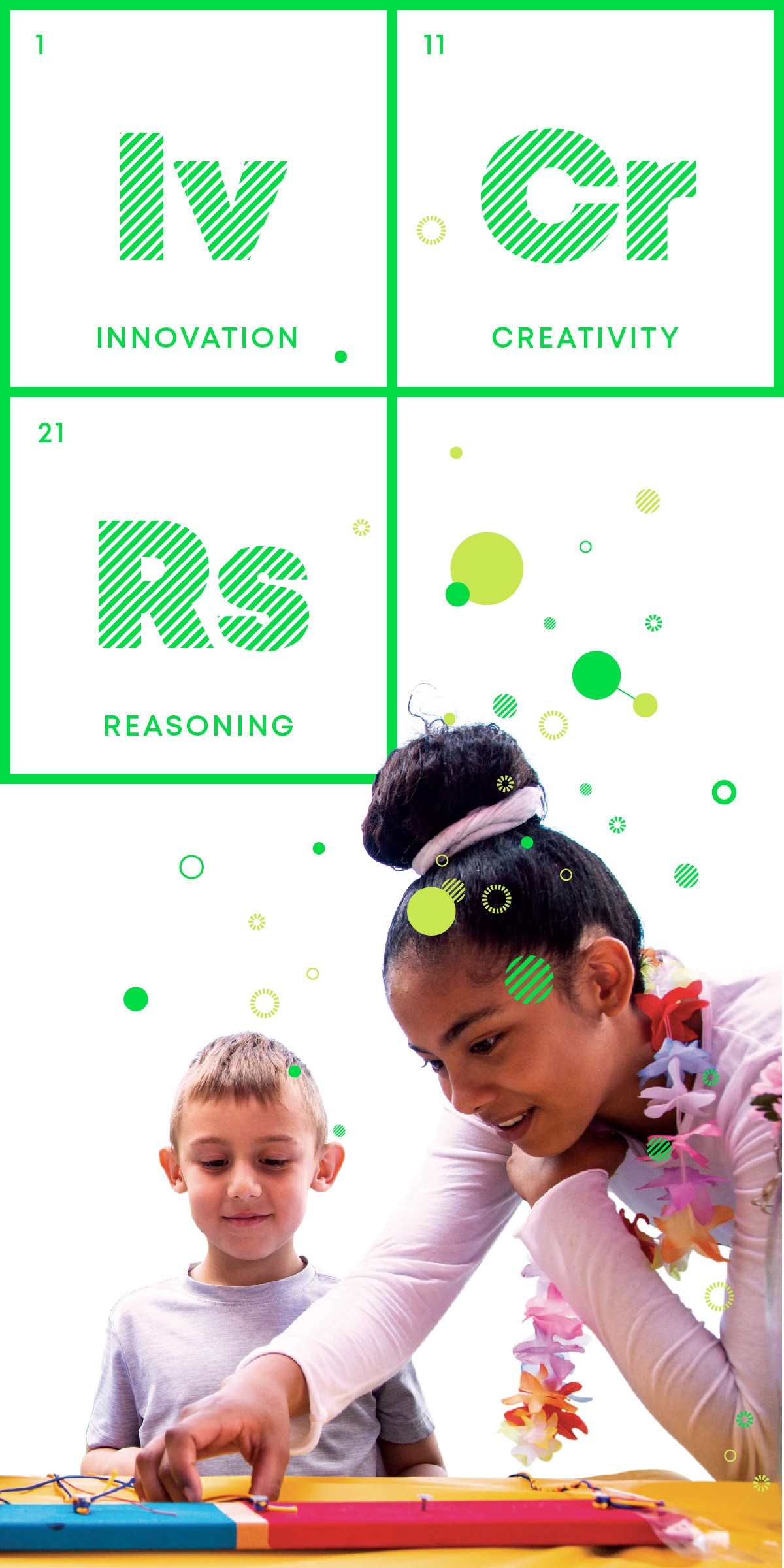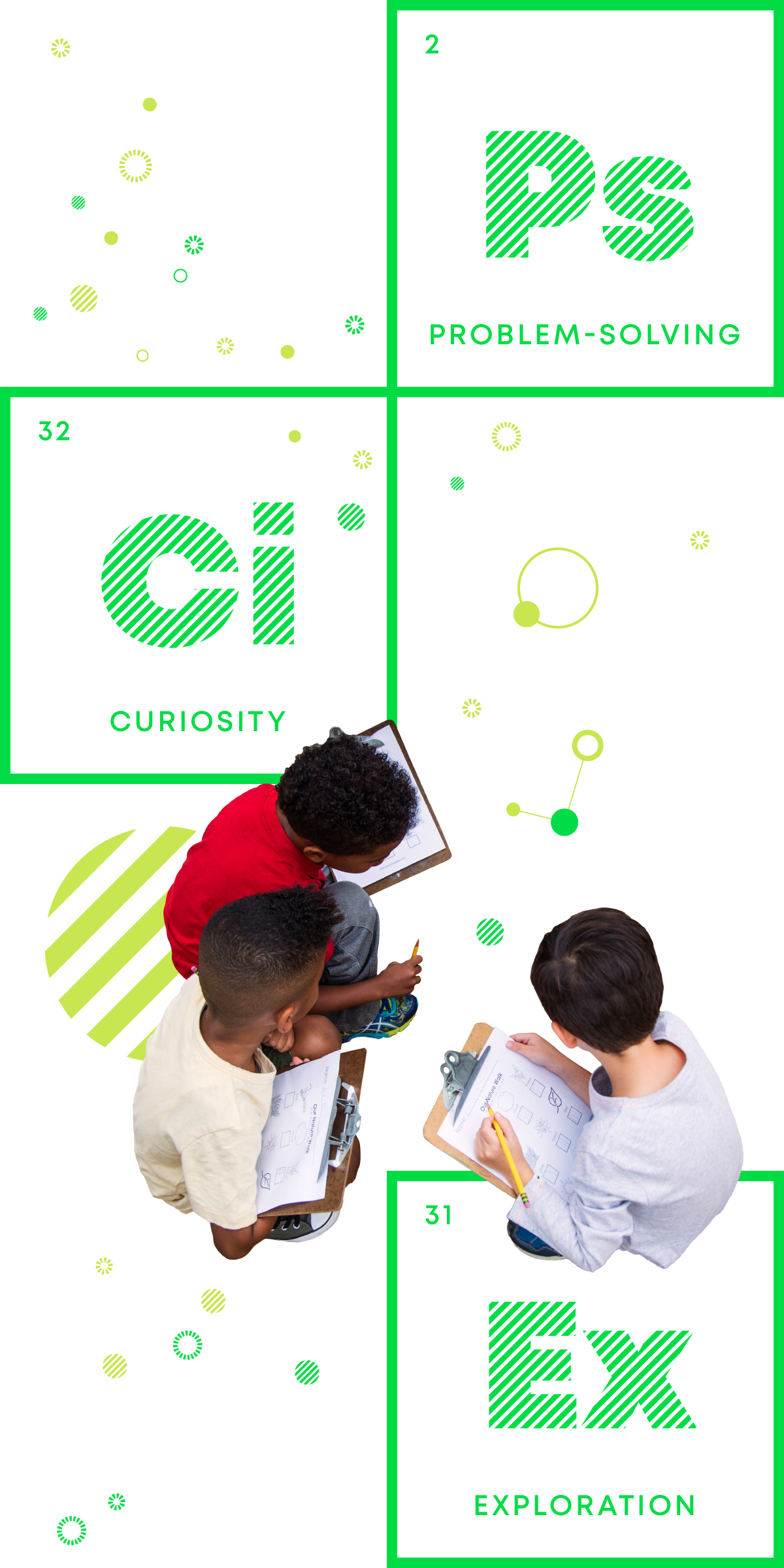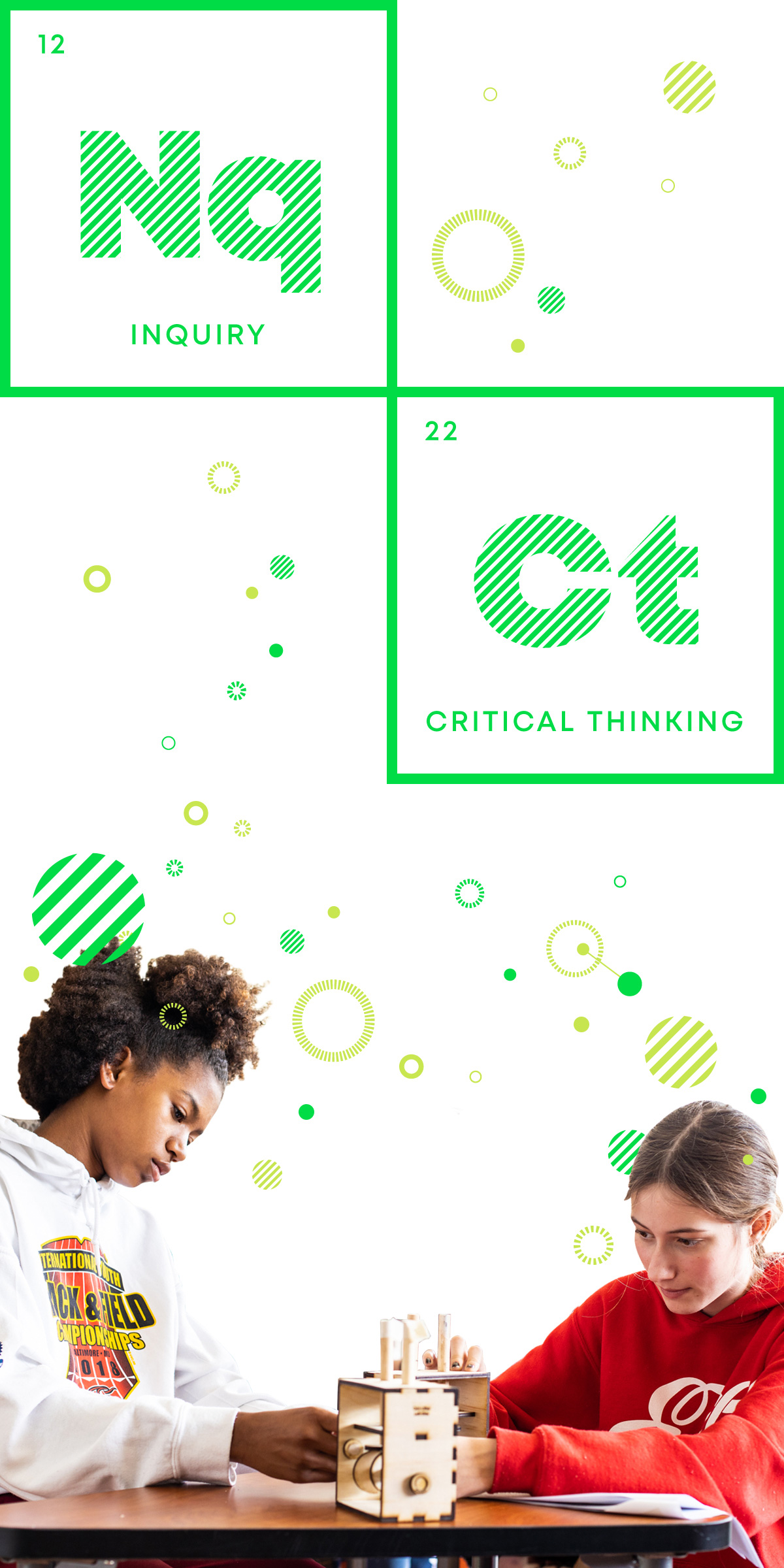
Innovation
Our students explore entrepreneurship by researching problems to be solved in community, environment, and industry. Interviews with local entrepreneurs help our young visionaries discover patterns in the motivations and resilience of leaders in the field that led to their relative success. Students also look inward to glean insights about their own strengths, talents, and stretches in collaborative group engagements with real world outcomes.
Creativity
Creativity is woven throughout our curriculum, from fine arts to language arts, athletics, and even science. Our Innovation Labs provide hands-on, creative spaces where students design, experiment, build, and invent as they deeply engage in Science, Technology, Engineering, Arts, and Mathematics (STEAM) skills. Our young inventors exercise their creative muscles by designing and building original projects such as organic perfumes, iPhone apps, and carved works of art!
Reasoning
Reasoning requires clear, organized, and defined thinking. Logic, deduction, and induction help us to understand and integrate ideas and facts into our previous knowledge. Reasoning helps us to develop mathematically and to think critically. Students learn to interrogate commonly-held assumptions, and identify, verify, and explain their thought processes and perceptions.
Problem-solving
Problem-solving requires us to analyze and understand the nature of a challenge, seek information to approach and overcome obstacles, generate and test predictions, and make confident decisions. Our students learn how to evaluate their progress, justify their results, and defend their solutions. Problem-solving transcends the ability to simply apply known methods to a specific problem; rather, it requires the confidence and resilience to venture into uncharted territory.
Curiosity
From flints for starting fire to self-driving cars, most of the breakthrough discoveries and remarkable inventions throughout history are the result of curiosity. As outlined in an article from the Harvard Business Review, research shows that when our curiosity is ignited, we think more deeply and rationally about decisions and come up with more creative solutions.
Exploration
“How do stories help us understand the world? What is the nature of the earth’s water cycle? Where do patterns occur in nature?” Full of wonder, students use all their senses to investigate their environment. We keep this fascination alive by giving students the right atmosphere and encouragement to explore topics, connections, relationships, and ideas that ignite their curiosity.


Inquiry
Young children naturally participate in inquiry, asking questions all day long. At Turning Point, we encourage our students’ great desire to know more about the world. Teachers provide opportunities for true inquiry that can shift the way students think about a subject and therefore catalyze change. Inquiry sharpens decision-making, boosts creativity, and deepens connections to others, leading to the discovery of new visions and ideas.
Critical Thinking
Critical thinking is the art of analyzing and evaluating subjects, content, or problems, in order to improve reasoning. By developing effective communication and problem solving skills, students seek answers by looking beyond themselves and investigating outside of their immediate social circles and communities. People with high scores on critical thinking assessments are less likely to show common biases, based on this recent study.
































